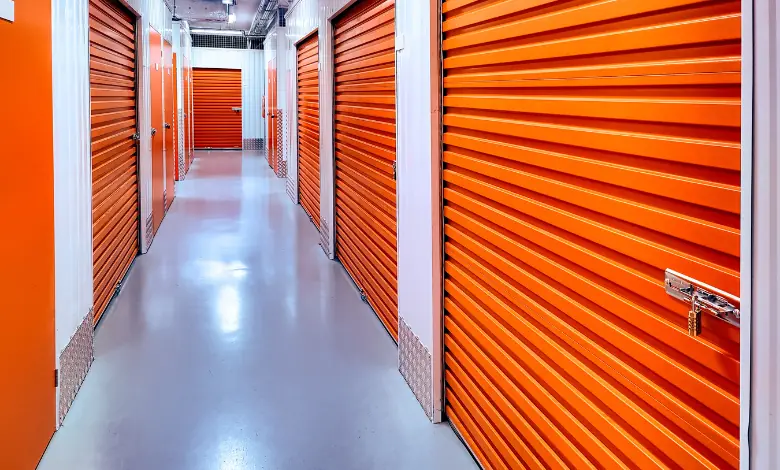Expert Advice for Those Considering Renting a Storage Unit

Are you considering renting a storage unit? If so, you’re not alone: A recent study found that the number of people renting storage units has increased by nearly 20% in the past five years.
This is likely because people are realizing that self-storage is a great way to declutter their homes and free up some extra space. However, when it comes to storing larger items like boats, it’s essential to consider boat storage features to ensure optimal protection and convenience.
Read on for some expert advice for those considering renting a storage unit, including the different types of storage units available and the benefits of each one. We’ll also provide tips on how to choose the right storage unit insurance for your particular needs.
Storage Unit Types: Which one is right for you?
When it comes to storage units, there are many different types available on the market. Below, we’ll discuss some of the most popular types of storage units so you can choose the one that’s right for you.
There are many myths about storage units that need busting, so we’ll further discuss how storage units are actually pretty affordable and safe, too.
Standard Storage Units
These are the most common type of storage units and can be used for a variety of storage needs. For example, you can use a standard storage unit to store seasonal items, such as holiday decorations or winter clothes.
You can also use these units to store other items you don’t need on a daily basis, such as old furniture or exercise equipment.
Standard storage units typically range in size from 5×5 to 10×30. The average cost of renting a standard storage unit is $85 per month.
Climate-Controlled Storage Units
If you’re storing items that are sensitive to temperature or humidity, then a climate-controlled storage unit is a good option. They typically cost between $100 to $250 per month.
These units maintain a constant temperature and humidity level, which can help to protect your stored items. You may want to use a climate-controlled storage unit to store important documents, electronics, musical instruments, or anything sensitive to temperature fluctuations.
Drive-Up Storage Units
These storage units are convenient because they allow you to drive your vehicle right up to the unit for easy loading and unloading.
This is a good option if you’re storing large items, such as furniture or appliances. Drive-up storage units typically cost $50 to $100 per month.
Vehicle Storage Units
If you need to store a car, boat, or RV, then a vehicle storage unit is the way to go. They cost between $50 and $200 per month, depending on the size of the unit.
Vehicle storage units come in a variety of sizes, so you can choose one that’s large enough to accommodate your particular vehicle.
Some units even have electrical outlets so you can charge your vehicle while it’s in storage, as well as higher ceilings to accommodate taller vehicles.
Storage Containers
If you need to store a large amount of items or require the flexibility to move your storage unit, consider the advantages of storage containers.
Storage containers come in a variety of sizes, and they’re also typically made from weather-resistant materials, which can help to protect your stored items from the elements.
These types of storage units can be especially helpful if you need a place to keep your extra stuff while you’re trying to make the most money when selling your home, as well as when you’re ready to move to a new home.
Storage containers can be delivered to your home or business and can be stored on-site or at a storage facility. They usually cost between $100 and $200 per month.
Questions to Ask Before Renting a Storage Unit
Now you know the reasons why you need a storage unit and you’ve already familiarized yourself with different types of storage units available, it’s time to start shopping around for one that meets your needs.
Here are some questions to ask when you’re considering renting a storage unit:
- What is the size and price of the unit? Storage units come in a variety of sizes, so you’ll want to choose one that’s large enough to accommodate all of the items you need to store.
- What type of security does the facility have? Storage facilities typically have security cameras and on-site security guards to deter theft and protect your stored items.
- What are the access hours? Storage facilities usually have specific hours when you can access your stored items. Most facilities are open 24 hours a day, but some have limited access hours.
- What is the rental agreement? Be sure to read and understand the rental agreement before signing it.
These are just a few suggestions of the important questions to ask before renting a storage unit so you can make sure you find the right one for you.
Storage Unit Insurance: What You Need to Know
When it comes to storage unit insurance, there are a few things you need to know. Storage unit insurance typically covers the contents of your storage unit in the event of fire, theft, or damage from weather events.
You may also want to consider getting additional insurance for items of high value, such as jewelry, electronics, or art. Storage unit insurance typically costs between $5 and $15 per month and can be well worth the investment.
Types of storage unit insurance:
- Standard Storage Unit Insurance: This type of insurance covers the contents of your storage unit in the event of fire, theft, or damage from weather events.
- Additional Storage Unit Insurance: This type of insurance covers items of high value, such as jewelry, electronics, or art.
- Climate-Controlled Storage Unit Insurance: This type of insurance covers the contents of your climate-controlled storage unit in the event of fire, theft, or damage from weather events.
When considering storage unit insurance, it’s important to check with your insurance provider to see what is and isn’t covered under your policy.
Are you ready to rent a storage unit?
Renting a storage unit can be a great way to store items you don’t need on a daily basis, and there are a variety of storage unit options to choose from, depending on your needs. Look for a trustworthy storage unit company to avoid unpleasant situations in the future.
When choosing a storage unit, be sure to ask about insurance coverage as well as the specifics of the rental agreement so you can rest assured your belongings are protected.






